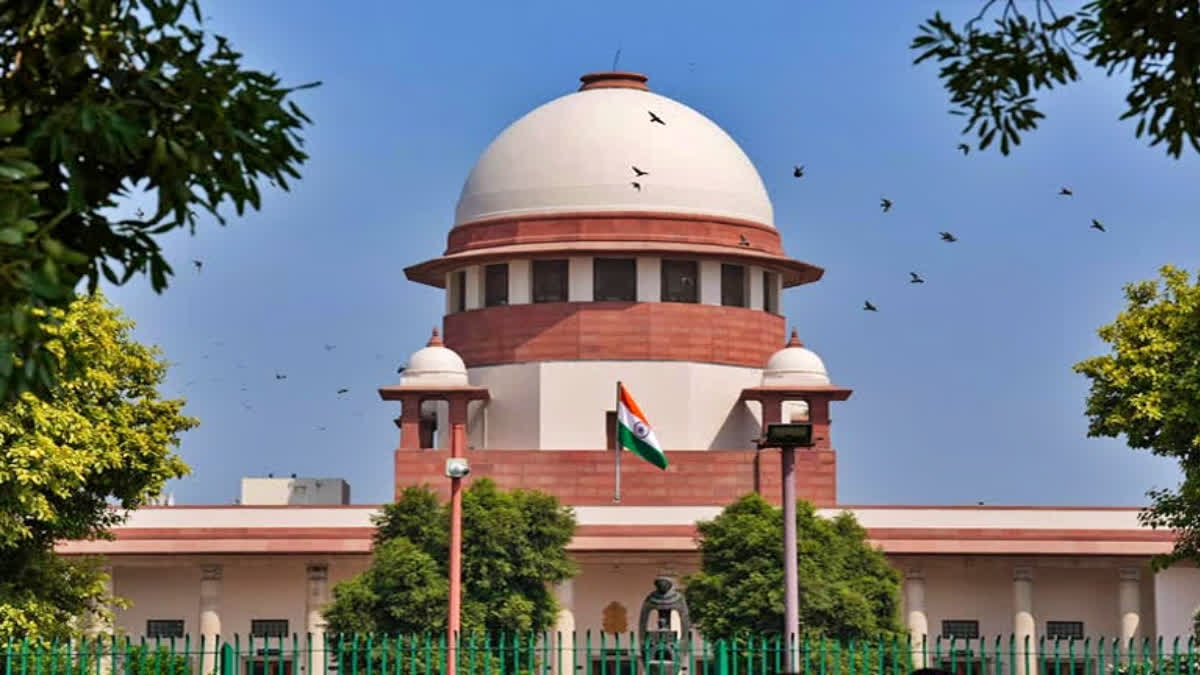New Delhi:The Supreme Court has asked the Gujarat government to explain the time span taken to decide applications filed by prisoners seeking remission, and also how many petitions are pending in the constitutional courts, high court and the apex court, making grievances about the non-consideration of the prayer for grant of remission.
The apex court specifically queried the Gujarat government whether the grant of remission can be conditional which is open to revocation. A bench comprising Justices Abhay S Oka and Pankaj Mithal order came on a plea filed by Mafabhai Motibhai Sagar, who was convicted by the trial court in 2008 in a murder case, which occurred in April 2006. Sagar was represented by advocates Rauf Rahim and Ali Asghar Rahim before the apex court. His counsel said he underwent 14 years of imprisonment and was entitled to remission under the old State policy of 1992.
In September 2022, a 9-member advisory committee in a meeting unanimously resolved to grant remission to the petitioner, however, no action was taken by the state government on the committee’s decision. Sagar moved the high court in February this year seeking parole, since no decision was taken on his remission or premature release. The high court did not grant him parole and he moved the apex court seeking relief. Gujarat government contended in the special leave petition that the decision on petitioner's remission had become stale and a fresh decision was required to be taken.
The apex court questioned the state government’s contention in orders passed on August 28 and September 11. The state government filed an affidavit before the apex court on September 30, stating that remission can be granted to Sagar but certain conditions are required to be imposed.
The apex court, in an order passed on October 6, said after a long delay, the respondent state government has ultimately passed an order dated 15 September 2023 granting permanent remission to the petitioner. “However, four conditions have been imposed, while doing so. Prima facie, we find that condition Nos.1 to 3 could not have been imposed after coming to the conclusion that this was a fit case to exercise power of the State Government under Section 432 of the Code of Criminal Procedure, 1973”, it said.
According to the first condition, after the release from jail, the prisoner shall behave decently for 2 years. "For this purpose, he has to submit two Sureties of the respectable persons of the Society stating that the prisoner shall not breach the peace and harmony of the society and also shall not threaten the complainant and witnesses", said the state's affidavit.
